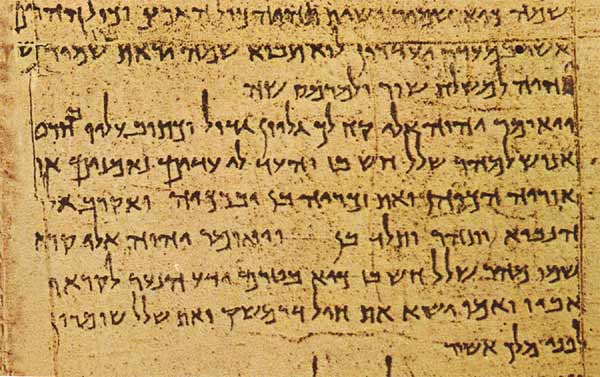
Every so often, someone corners me after church with the kind of expression usually reserved for discovering that the casserole at a potluck was, in fact, made from last year’s leftovers. “Why,” they ask, “do we still read the Old Testament in church? Couldn’t we just skip to the good stuff — the parables, the Beatitudes, the warm parts?”
It’s a fair question. The Old Testament has its share of difficult passages. Battles, genealogies, and laws about fabrics — sometimes it feels less like devotional reading and more like a cross between a history textbook and a Levitical edition of Better Homes and Gardens. There are moments when, as Stephen Leacock once said about another kind of reading, “I know the book is good for me, just like cod liver oil, but I wish it came with a spoonful of jam.”
Now I feel as though I need to come clean on one thing. I must confess to a very keen love of the Hebrew Scriptures. The study of Ancient Hebrew was what made all of Scripture come alive for me. I love to be able to make the connections between the ancient story of Israel and the life of the people of God in our own scriptures, and in our world today. That is the real bread and butter of preaching for me. But I still have to admit that there are days when I read the Hebrew Scripture passage and wonder how anyone could preach a message of grace connected with that.
And yet — we keep reading it. Week after week, the lector bravely steps up and proclaims another story of wandering Israelites, moody prophets, or bewildering visions. Why?
Because the Old Testament is not just a preface we’ve outgrown. It’s the long, sprawling, sometimes messy story of God’s love affair with humanity. It’s a record of people who tried, failed, stumbled, repented, and tried again — much like us. It’s full of complaints (“How long, O Lord?”), confessions (“Create in me a clean heart”), and occasional flashes of astonishing faith (“Here am I, send me”).
And yes, it has its tough bits. There are passages that make us wince, moments we’d rather avoid, and questions that don’t have easy answers. But wrestling with those texts is part of the Christian life. Jacob wrestled with an angel and came away limping, but blessed. We wrestle with scripture, and sometimes we limp too — but we also find blessing.
Besides, the Old Testament is rich. Where else do we get the poetry of the Psalms, the vision of justice rolling down like waters, or the promise of Emmanuel, God with us? Without those voices, the New Testament floats in a vacuum. Jesus didn’t arrive in a world that had been twiddling its thumbs for four thousand years, waiting for something interesting to happen. He came as the fulfilment of Israel’s story — the long story we rehearse every time we open those ancient pages.
Think of it this way: skipping the Old Testament would be like tuning in to a movie halfway through and wondering why everyone is so emotional in the final scene. You’d miss the build-up, the characters, the heartbreak, the longing. You’d miss the story that makes the ending make sense.
So yes, sometimes the Old Testament is bewildering. Sometimes it’s tough to hear. Sometimes it reads like a sermon preached in the desert without coffee. But it’s our story too. It’s the story of God’s people learning — slowly, painfully, beautifully — what it means to walk with God.
And the best part? That story is still unfolding. Which means that when we hear the old, old words on a Sunday morning, we’re not just listening to history. We’re listening to family.
So the next time you hear the lector trudging through a long list of names or recounting the 37th rebellion of Israel, take heart. Beneath the dust is treasure. Beneath the strangeness is wisdom. And beneath it all is the God who has been telling the story from the very beginning—and who hasn’t finished with us yet.
Prayer
God of Abraham, Isaac, and Jacob,
God of prophets, poets, and pilgrims,
we thank you for the gift of your Word,
both old and new,
ancient and ever fresh.
When the stories seem strange,
give us patience.
When the words seem hard,
give us wisdom.
When the passages challenge us,
teach us to wrestle faithfully,
and find your blessing even in the struggle.
Open our eyes to see your grace
woven through the long story of your people,
and open our hearts to know that we too
are part of that story today.
We ask this in the name of Jesus,
the Word made flesh,
who fulfils all your promises.
Amen.